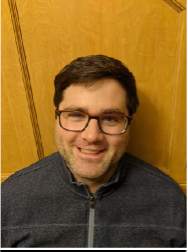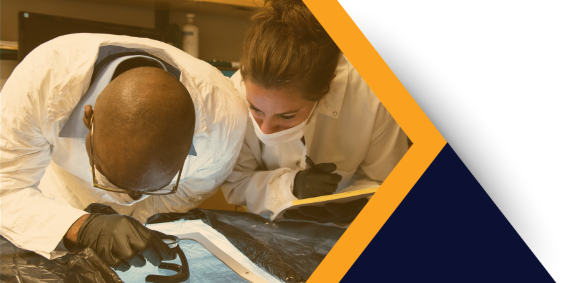Meet Dr. William Bothfeld

Dr. William Bothfeld
Advisor: Dr. Brian Pfleger
Institution: University of Wisconsin
Bio: Dr. Will Bothfeld is an ORISE-IC Post-Doctoral research fellow studying custom antibiotics in the Pfleger lab at the University of Wisconsin-Madison. He grew up in the driftless region of Southwestern Wisconsin, attended Dodgeville High School, and completed a Biochemistry Degree at UW-Madison, with a certificate in environmental studies and business. Will worked at the Great Lakes Bioenergy Research Center in the fermentation group, growing ethanol producing microbes in bioreactors and analyzing their performance utilizing sugars sourced from waste biomass. He then obtained a PhD in Chemical and Biological Engineering at Northwestern University under Professor Keith Tyo, studying bacterial metabolism to engineer Escherichia coli to efficiently produce bioproducts of interest. His career has focused on using synthetic biology and metabolic engineering to produce renewable biochemicals at an industrial scale to replace petroleum-sourced products. He has focused his efforts at the intersection of research and business and looks forward to bringing lab discoveries to the broader public as we enter the age of biomanufacturing, and transition to a green economy.
Abstract: The emergence of microbes resistant to multiple antibiotics is an imminent global health threat, generating untreatable “super bugs” that could also be engineered for bioterrorism purposes. Resistance to novel small-molecule antibiotics can quickly evolve and spread to other species through horizontal gene-transfer, mitigating years of research and development, making them unattractive drug candidates. Furthermore, there is little incentive for pharmaceutical companies to develop novel antibiotics due to the risk of long approval timelines that limit the effective life of the compounds. Current development approaches screen large libraries of chemicals against pathogens and are capital and resource intensive. Machine-learning has been utilized to more efficiency discover new antibiotic modes of action, but this approach remains part of the traditional development pipeline. Ideally, we would 1) rapidly identify pathogens through sequencing and 2) synthesize cheap and targeted antidotes on-demand to combat emerging threats. Towards that end, we anticipate that disrupting gene regulation that controls cellular metabolism and division using antisense DNA could be an attractive method to kill pathogenic or bioengineered bacteria. Because gene targets would be strain specific, the antibiotics could be made rapidly and cheaply on site, from programmable oligonucleotides. We believe our approach could be a paradigm shift in how antibiotics are cheaply made and rapidly deployed, akin to recent advances in the development and deployment of mRNA vaccines.



